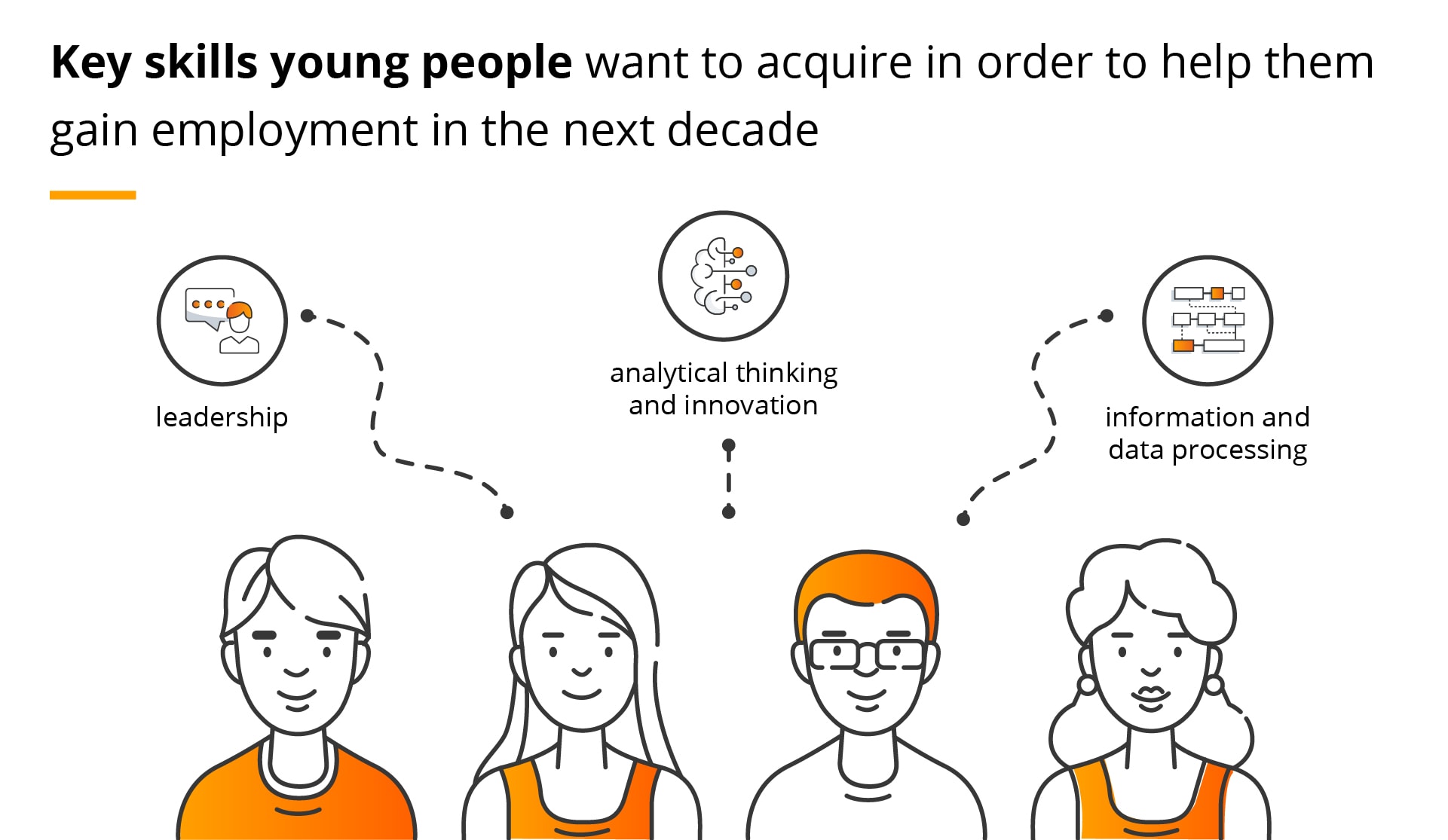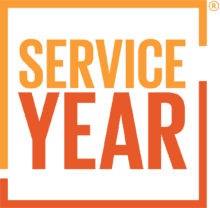
Becoming an IT expert – supporting youth in developing their tech skills
There is no such thing as a crystal ball. But we don’t need one to know that young people who are soon to enter the job market will need solid IT skills. It seems like one of the most obvious things to say, but is the problem really addressed in the right way?
The importance of great training at the beginning of a career is of the utmost importance. Too many organisations do not put the money and required training into the young professional’s career and it leads to reduced motivation for the individual and their team and increased costs because of lost productivity and increased turnover of staff. A forward-thinking CEO is always looking for the best way to make their organisation the best way to attract young professionals and young managers. These organisations get this!Stuart WebbA Self-Worth Management Coach and Strategy Director who works with young professionals
Today, we look at different organisations that help youth in developing their tech skills. Let’s investigate their mission and activities, and check what’s their impact on the next generation of employees!
Global lack of talent vs poor education – an increasingly pressing problem
According to PwC’s 23rd Annual Global CEO Survey, 74% of CEOs are concerned about the availability of key skills to grow their businesses. Yet in a report presented by UNICEF, as much as 31% of youth say skills and training offered to them don’t match their career aspirations. What are those aspirations? Usually, to be competitive in the job market, which very often mean having right tech skills to work on IT projects.
In today’s highly digitised world, it is really tricky to find a job that would not require employees to use some kind of technology.
The skills that are needed can be as complex as coding or as simple as using a laptop. But they all require some level of digital literacy, meaning it is an area young people should continuously work on, so that when the time comes, they can prove their skills to their employers.
Organisations that help youth develop their skills
Schools around the world are rarely equipped well enough to conduct IT trainings for young people. This is why many organisations and businesses, both global and local, regularly decide to come up with programmes that help young people get better prepared to the competitive job market. Let’s look at some of them to see what they can achieve.
Service Year Alliance
Service Year Alliance is an American non-profit organisation with the aim of transforming lives by creating pathways to opportunity for young people. By organising a service year of paid, full-time work experience, it allows youth to develop real-life experience as well as professional skills they need to launch their careers.
By allowing young people to get a valuable work experience as soon as they can make it, Service Year Alliance increases their chances to get employed at the end of their academic career and help them get better prepared for the highly competitive job market.
Code Your Dreams
Code Your Dreams is an exciting start-up with a mission to empower underserved youth to solve community problems through coding. They aim at establishing the next generation of innovators by education young people how to code.
Their educational activities can be organised in kindergartens and in high schools – no matter where they go, they teach students about the application development processes, from the initial stages of ideation and design thinking to UI/UX, programming, product management and the final delivery.
Founded in the United Stated in 2018, their core program consists of a weekly after school programme, which teaches computer science, design, and entrepreneurship with a social justice lens. Since its launch, it was used by over 5 000 students worldwide.
We’re not just building the next generation of technology leaders. We’re also building the next generation of community leaders and activists. At Code Your Dreams, our students innovate solutions to some of our communities’ toughest problems with code. The best people to solve problems that affect our communities are community members themselves. If we can give every community the skills and resources to develop technology solutions, then we’re going to see a much better, more equitable world for everyone.Brianne CaplanThe Founder and Executive Director of Code Your Dreams
We connect the dots
We connect the dots is a NY-based education non-profit organization that offers underrepresented populations and underrepresented youth the opportunity to engage in experiential learning programs for Science, Technology, Engineering, Arts and Math (STEAM). The programs are designed to assist young people and adults prepare for entry and re-entry into America’s evolving workplace.
We Connect The Dots was founded by entrepreneur and Microsoft veteran Laurie Carey to address the digital divide in communities nationally. We Connect the Dots exists in-concert with Ms. Carey’s for-profit entity, Nebula Academy (a D.B.A. of Laurie Carey Consulting).
Currently the organization works with students, in Long Island, the Greater New York Metro area, Pennsylvania, Ohio, Washington, California, Illinois, Virginia, and Iowa. Their programs are designed with a metacognitive pedagogy approach combined with industry relevance to ensure we bring value to participates with transferable skills ready to bring immediate value to employers.
i.c. stars
i.c.stars is an interesting American organisation that focuses on creating opportunities for underserved communities. Its aim is to bridge young adults with the tech sector, by finding real talent, training it, and putting it to work.
Young people who participate in i.c.stars programmes learn by doing, using coding, business and leadership instruction they are provided with along the way. What’s more, by collaborating with i.c.stars they gain professional network much needed in today’s highly competitive world.
The results? People who decide to start their adventure with i.c.stars become IT professionals who earn as much as 300% more than before and work mainly as application developers or business analysts. Very often they also become advocates for change, knowing from their own experience how beneficial it is to grab an opportunity to learn new skills.
“Innovation is born out of diverse thinking. i.c.stars creates talented technologists who not only bring innovation but a systems-level lens to their jobs. At the same time, we are creating economic mobility where it is most needed”Sandee Kastruli.c.stars president
Grabbing an opportunity
To sum up, let’s give the floor to Brianne “Bri” Caplan, the founder and executive director of Code Your Dreams. She once said:
“Today, coding competency gives you exposure to the highest, most stable jobs out there. Tomorrow, coding competency will be a requirement. Code or be coded. It is taking over as the newest form of literacy.”Brianne CaplanThe Founder and Executive Director of Code Your Dreams
And it’s great that there are organizations that help young people find their professional way and develop their skills.

Explore our potential and reach your goals
Achieve your business goals with technology and get the product that is well adapted to your environment.








